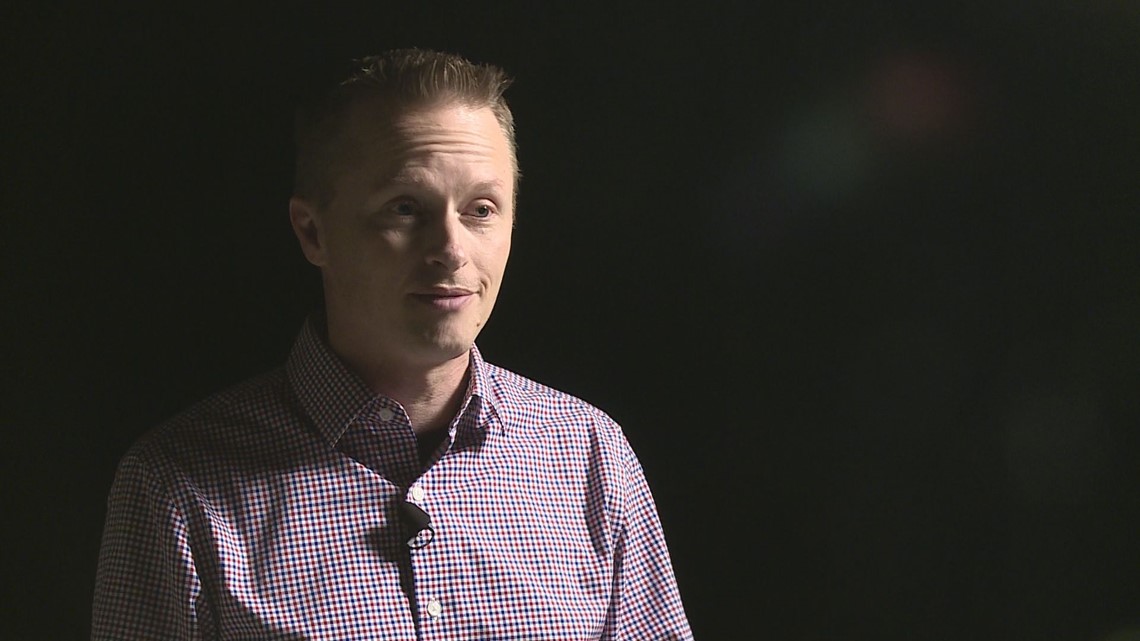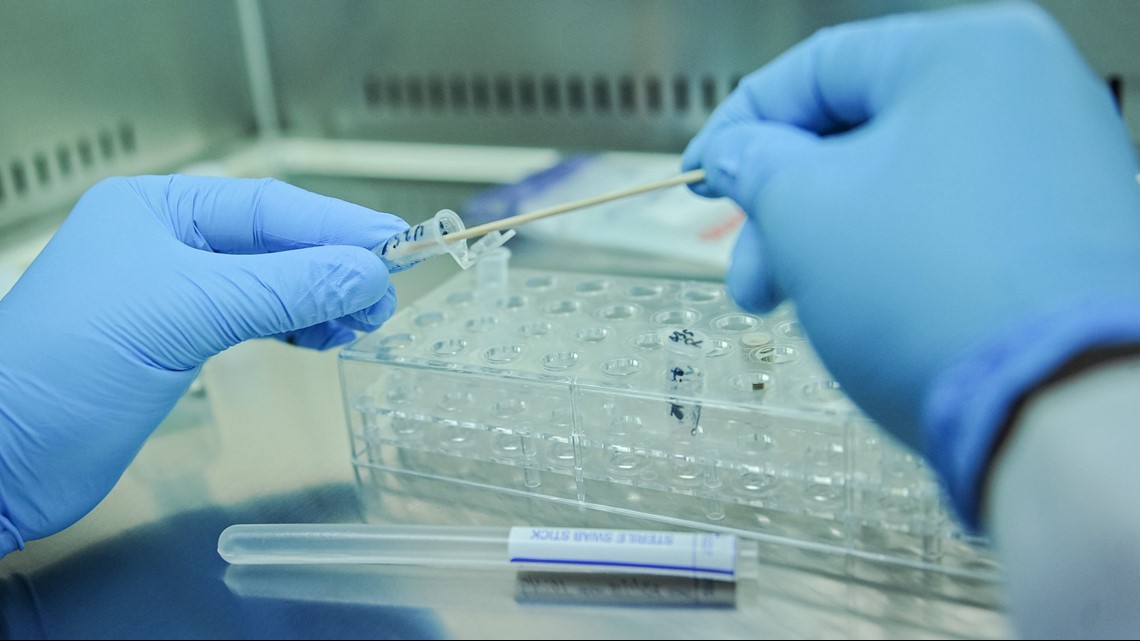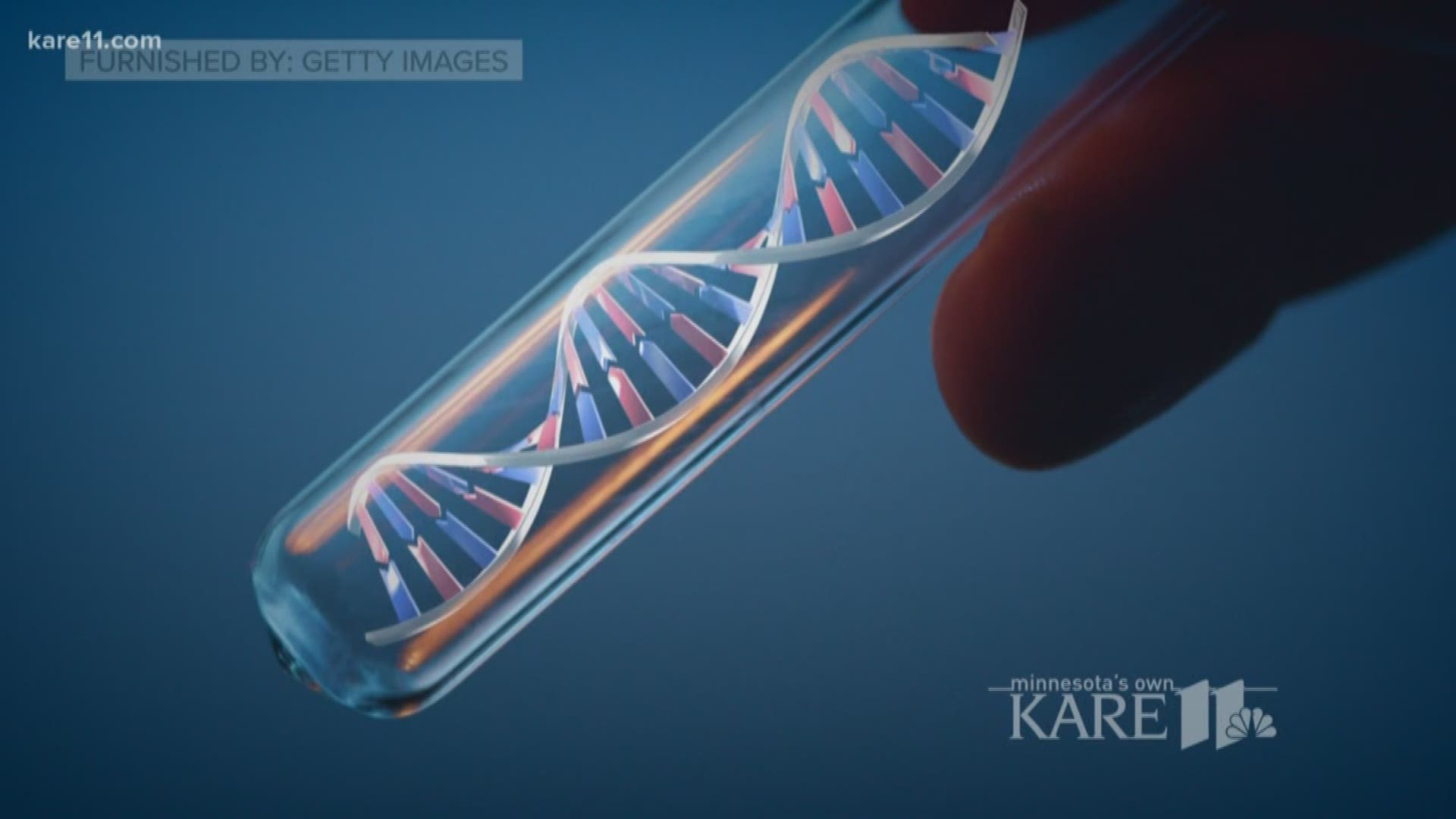GOLDEN VALLEY, Minn. - Thinking about doing one of those at-home DNA tests? Curious about your ancestry or whether you’re predisposed to certain diseases and conditions? All that information can be compelling, but are they safe? Are they worth your money? Here’s what we found out.
Steve Van Dinter grew up knowing he was Dutch.
“We had the wooden shoes...we’d take pictures...we had a little Dutch boy and girl in our yard,” he recalls.
Then one day, he suddenly wasn’t.


“It was intriguing for me to find out that our Dutch side is a very small percentage of who we are. In fact, we're more Irish, British and German than we are Dutch...I mean way more than we are Dutch."
Steve did the 23 and Me DNA test, which by the way, hasn't gone over well with his adamantly Dutch parents. Steve didn't just test his ancestry, he consented to all the medical genetics testing too.
"I opted in for the Alzheimer’s. I opted in for Parkinson’s. I opted in for macular degeneration. So there's certain actual health risks that they'll have you opt in for because some people don't want to know,” says Steve.
You’ll also get results on a whole host of other things. You’ll learn everything from whether you can smell asparagus in your urine…seriously…to whether you sneeze in the sun.
“The genetic test said I was less likely to have photic sneeze reflex. My friends and my parents will tell you I very much have it every time I walk out into the sun,” he says.
That, Steve says, is the only thing he felt was off about the results.
“My grandma was just recently diagnosed with macular degeneration and no surprise then to me that it came back that I carry the genes for possibly developing that."
No surprise is right, according to certified genetics counselor Shari Baldinger.
"You want to know the least expensive, and sometimes most potent genetic test, is a good family history,” says Shari.
In other words, Shari could have told Steve, without a test, that he was probably at a higher risk for macular degeneration because of his grandmother's diagnosis. But, not everyone has access to family history.


So, are these at-home tests accurate and worth your money? We asked not one, but two genetic counselors their thoughts.
“Buyer beware,” says Shari Baldinger with Allina.
“Proceed with caution,” says Shellie Kieke with HealthPartners.
Shari and Shellie both had the same concerns.
First, accuracy. The testing companies are not all equal. Make sure the one you choose is using a certified lab.
Second, while it may seem like you're getting a lot of information, even the best at-home tests are limited.
"We look at your family history, we look at your lifestyle, we look at environmental factors, so all of those puzzle pieces really help me access what really is your risk for having a genetic disease," says Shellie.
Third, pay attention to what you’re not getting. For instance, 23 and Me was just FDA approved to test for mutations in the BRCA1 and BRCA2 genes, the genes associated with a higher risk of breast and ovarian cancers.
“The test offered is looking at three mutations out of thousands, and they're only common in the Ashkenazi Jewish population. It doesn't test for any other mutations in those two genes, nor does it test for mutations in other genes that create a risk for those cancers, so if I got the test and it was normal, it really doesn't tell me anything," says Baldinger.
We reached out to 23 and Me, while they wouldn't go on camera, they did issue a statement saying,
“Their standard for accuracy is unmatched in the market,” and that they were the only consumer company to get FDA authorization. And if you scroll down to the small print at the bottom of their website, they state very clearly the limitations of their testing and that it should not be used to make medical decisions.
And finally, and perhaps most importantly, your privacy.
"Maybe you want to know how are they going to use your DNA? Do they save that sample? Sometimes they sell it to another company that's doing research,” says Kieke.
Steve Van Dinter knew all the caveats before he sent off his saliva and says he still wouldn’t change his mind.
"I feel like if you're armed with information, and there's a potential for you to do something to change that outcome, I want to know.”
Both genetic counselors tell us prices of clinical genetic tests have come way down. Actually, if you choose to forgo insurance and pay out of pocket, some tests will run you about $250, which is in-line with the cost of at-home tests and will be far more comprehensive.

